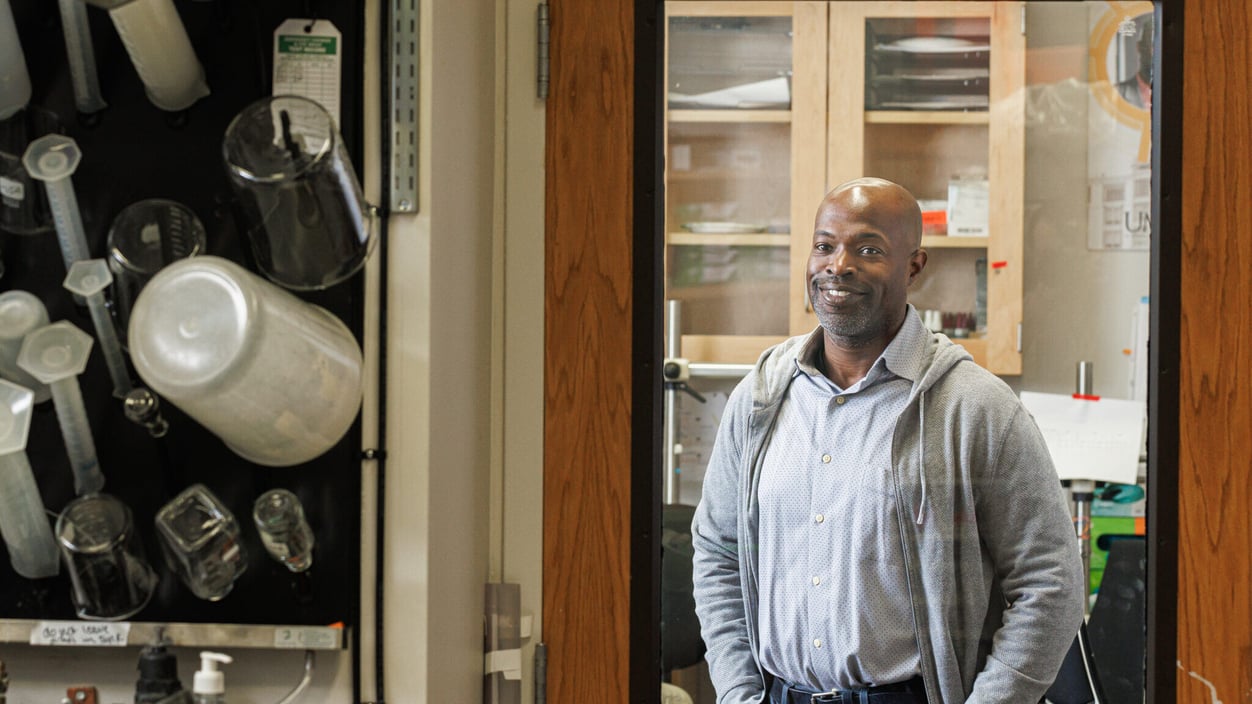it's electric
All he wants to do is reengineer the brain, OK?

Justin Cook for STAT
Specifically, Kafui Dzirasa wants to reengineer the brain's electrical patterns to treat mental health conditions like depression, anxiety, and schizophrenia. While most treatments for serious mental illness target the brain's chemistry, he's focused on electrical networks that may be signaling out of sync.
Dzirasa, 46, is a psychiatrist, engineer, and neuroscientist. He's met with American presidents, is a darling of TedMed, and has the ear of many of the nation's science and health leaders. But he hasn't always felt welcome in these spaces. As a Black man in neuroscience, he's often an "only" or a "first" in the room, he told STAT's Usha Lee McFarling.
Usha first heard about Dzirasa back in 2021, while reporting on an NIH plan to confront systemic racism, she told me. She was intrigued by his groundbreaking research, his high level of achievement at such a young age, and how he was paying it back by spending so much time mentoring. Dzirasa says you can do good science and mentor at the same time. "You don't have to choose," he told Usha. Read more.
commercial determinants of health
How processed are the foods at your grocery store?
Last week, the New York Times published a fun quiz to see which foods in your cart are ultra-processed. But what you bring home depends on where you go. In a study of 50,000 food items available at Target, Walmart, and Whole Foods, researchers found that all three stores offer substantially more highly processed food than low processed options. But at Whole Foods, there was more variability of processing levels for each type of item, whereas Target and Walmart more often only had highly processed options. Target had the highest proportion of ultra-processed products.
The study, published today in Nature Food, accompanies a database of all 50,000 food items, intended to help regular people understand what's available to them. But food processing is a complicated and increasingly political topic. As the quiz points out, vanilla ice cream made by Häagen-Dazs (heavenly) is not ultra-processed, but Nature Valley's oats and honey protein granola (meh) is. Ice cream for breakfast?
and another exclusive
Top antitrust official calls for breaking up giant health care firms
Government officials need to consider breaking up the powerful health care companies that have price-gouged patients and suppressed competition, the Biden administration's top antitrust official told STAT's Bob Herman. Jonathan Kantor, former assistant attorney general at the Department of Justice, is the highest-level official to speak out on the competitive defects within health care.
"Health care is this massive, complex system that I think is beguiling and overwhelming to so many people," Kanter said. "It's going to take a lot of work to get it on the right track." President-elect Trump has nominated Gail Slater as Kanter's replacement in the DOJ's antitrust division.
Read more or watch the whole exclusive interview.


No comments